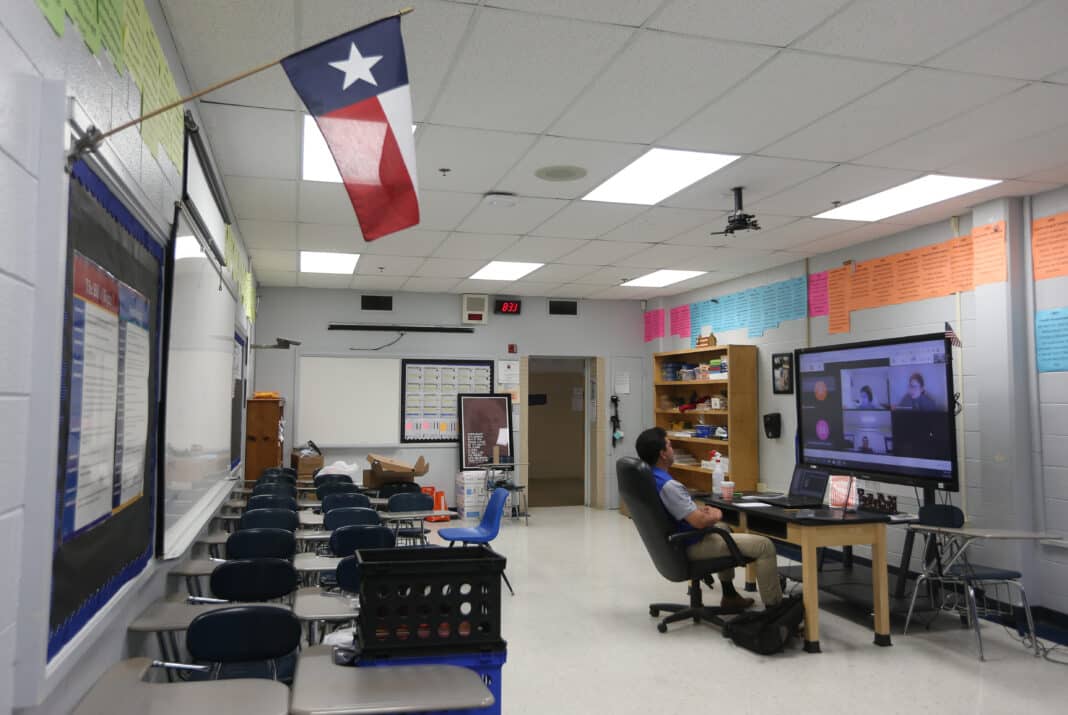Rio Grande Valley schools are beginning to gauge the impact of almost a year’s worth of learning under COVID-19 protocols in the form of failure rates that are often double or even triple what they were before the pandemic began.
Boards at McAllen and Weslaco independent school districts both reviewed data this month administrators said shows the “COVID Slide,” learning loss caused by non-traditional and virtual learning.
In McAllen, the number of students failing one or more classes in the first semester of the 2020-21 school year roughly tripled compared to pre-pandemic rates.
That metric went from 10.77% for elementary students in 2019 to 36.91% in 2020, and from 4.38% to 12.18% for middle school students.
Failure rates also increased at all three of the district’s high schools. In 2019, 29.33% of McAllen high schoolers were failing one or more classes in the first semester, a number that increased to 44.58% in 2020.
The biggest change is at McHi, which saw that number go up from 27.14% to 52.14%.
In all, 2,826 McAllen high schoolers were failing one or more courses last semester, 928 more students than last year.
Weslaco ISD saw a significant increase in failures as well. Middle and high schoolers failing two or more classes in the fall semester increased from 13% in 2019 to 25% in 2020.
Out of the district’s 8,700 students in grades 6th through twelve, 2,215 were failing two or more courses in the fall.
The rate of first through 12th graders failing two or more core classes in the third six weeks almost doubled as well— going from 13% pre-pandemic to 24% post-pandemic.
“This data does not reflect the hard work of our teachers and our administrators, and even our parents,” WISD Superintendent Priscilla Canales told the district’s board earlier this month. “And it does not reflect what our students know and what they’re able to show that they know.”
Canales said it isn’t a matter of students being unable to learn — it might not even be a result of them not knowing their coursework.
“It’s just that they’re not completing assignments,” she said.
Engagement, the administration there says, is the chief problem.
“The majority of the concerns that are coming up are with that engagement piece, trying to get the students to engage online,” Abel Aguilar, assistant superintendent for elementary education and leadership said. “So we’re tackling a lot of those scenarios with home visits. We’ve really gone out there to try to get them to log on.”
In addition to home visits and building stronger relationships with students, Aguilar said the district has offered parents more flexibility in sending their children back to school in an effort to get students engaged in classrooms.
“If we can get them in, let’s get them in,” he said. “So we’re recruiting them, we’re bringing them in. That’s why our numbers are going up on campus, because our goal is to get them engaged and get them learning.”
Aguilar says the district’s students have particularly struggled with math this school year and that increased failure rates is hardly a Weslaco-specific problem.
“It is a concern,” he said. “We do speak with other colleagues in other districts, and they’re experiencing similar scenarios and the concerns that are taking place.”
In McAllen, administrators expressed their faith in summer school as a way to tackle that national phenomenon for their students.
Bridgette Vieh, associate superintendent for instructional leadership, said the district has bolstered its summer school program and will offer new remediation courses at the elementary level.
“There will be teachers from that campus, the principal at that campus,” she said. “They’ll get those kids in, they’ll offer it through the computer, there will be tutors beside them. And I feel very confident in the teachers at all of the campuses and the principals, that they’ll get these kids caught up.”
Vieh waved off the notion that students had dropped off the radar at the district, showing enrollment data that was little changed from pre-pandemic numbers.
Trustee Sam Saldivar said that based on the district’s strategy, its students should be able to catch up by next summer at the latest, if they don’t opt for summer school in 2021.
“For the community, what you’ve been hearing from a national level, about potentially being a slide that could go on for years if not hurt a whole generation,” he said. “At McAllen ISD we’ve been very very purposeful and focused on addressing this so they don’t move.”





